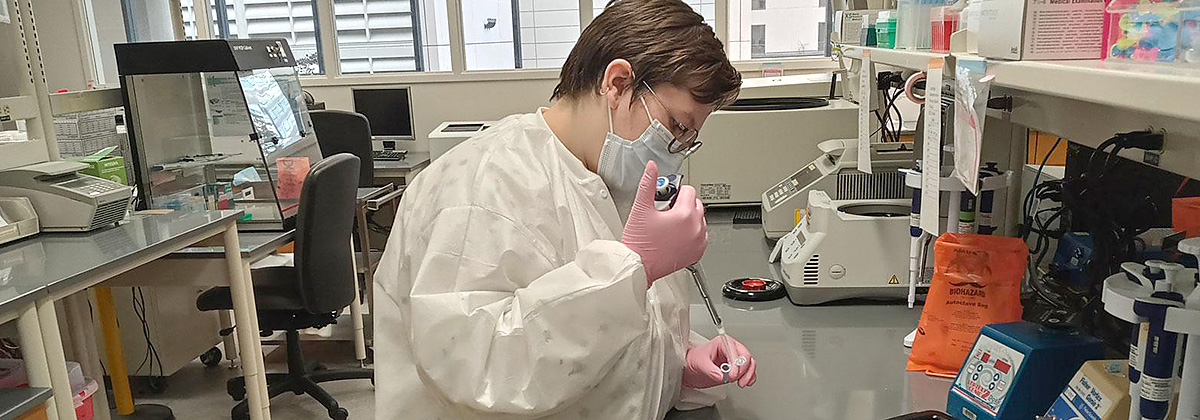The Division of Clinical Pathology and the DUHS Clinical Laboratories

The Clinical Pathology Division of the Department of Pathology is an integrated and integral part of the department that consists of 11 full time PhD laboratory directors with either primary or joint appointments in our department, 14 part-time medical directors who are part of the academic or community pathology practice, and five fellows. This group supports the three-part mission of the Duke School of Medicine and Duke University Health System as outlined below.
Clinical Mission
The Department of Pathology has operational and medical oversight and sets direction for our DUHS Clinical Laboratories. In this role, we (1) oversee clinical testing and reporting to ensure the highest quality clinical services (2) develop quality management systems and proficiency-testing programs, (3) provide consultation with ordering physicians, (4) ensure educational programs for our staff, and (5) develop strategic plans that are in line with the needs of our patient population, physicians and health system leadership.
Our laboratories consist of approximately 60 individual work centers including labs at Duke University Hospital (DUH), Duke Regional Hospital (DRH), and Duke Raleigh Hospital (DRAH). Laboratories services include, but are not limited to, clinical chemistry, hematology, urinalysis, coagulation, microbiology, molecular pathology, cytogenetics, biochemical genetics, point of care testing, and transfusion services. These laboratories employ state of the art technologies to provide the best clinical care for our Duke patients (eg. NGS in the Molecular Diagnostics laboratory for acquired and inherited mutation detection; MALDI-TOF mass spectrometry in the microbiology laboratory for rapid micro-organism identification; and a variety of mass spectrometry approaches for metabolite identification in the Biochemical Genetics Laboratory).
All practices of Clinical Pathology are represented within our laboratories and nearly all clinical laboratories within our health system are under this oversight umbrella. Approximately 950 employees staff the laboratories, which have an annual testing volume of approximately 12 million reportable cases per year.
Educational Mission
The Clinical Pathology division within our department is home to the CP component of our Resident Education Program. Residents have the opportunity to rotate through all of laboratories. They spend at least two months in molecular diagnostics/molecular pathology and one month in cytogenetics to ensure that they have a strong working knowledge of the largest growth area in Clinical Pathology. Residents also participate in a yearlong apprenticeship program in which they are paired with a laboratory director so that they can see and be part of large projects from start to finish (new test validation, new instrument implementation, etc.).
We currently have three fellows in the Molecular Diagnostics and Cytogenetics Laboratories and two fellows in the Clinical Microbiology Laboratory. The molecular/cytogenetics fellows are part of the ABMG fellowship program, which is a joint effort between the Pathology Department and the Medical Genetics Division within the Pediatrics Department. The microbiology fellowship is an ACGME-accredited program through the Pathology Department. These fellows are training to be laboratory directors. They also are central to our research and new test development within our labs.
Research Mission
Our Clinical Pathology division supports research in three ways:
- By offering our routine clinical services and activities to Duke investigators in support of clinical trials or basic research
- Through the translations and validation of clinical tests that stem from the efforts of our Duke investigators
- Through the individual research interests and activities of our directors.
At any one time, many trials use the routine testing services of our laboratories. Efforts range for simple research blood draws supported by phlebotomy to the validation of instruments or devices through partnerships with industry to the development and validation of molecular assays to support clinical research studies. In addition, the clinical laboratories serves serve as the final translational portal for discoveries made within the health system, including the translation of a variety of discoveries into diagnostic tests now used to care for our patients.